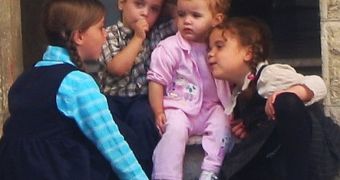Many parents have over the years expressed concerns that only children may suffer more from a social point of view than kids who have siblings at home. A new study now shows that these fears are without merit.
According to the new data, it would appear that single children do not fare any better or worse than those who have siblings in social situations.
In other words, they are neither more nor less popular than their peers. Parents who enjoy the smaller family trend currently sweeping the developed world have nothing to fear.
“I don't think anyone has to be concerned that if you don't have siblings, you won't learn the social skills you need to get along with other students in high school,” explains Donna Bobbitt-Zeher.
She is a Ohio State University (OSU) Marion campus assistant professor of sociology, and also a researcher on the new study.
Full details of the investigation will be presented today, August 16, at the annual meeting of the American Sociological Association, which is being held in Atlanta, Georgia.
Bobbitt-Zeher collaborated closely with OSU professor of sociology Douglas Downey on the new investigation, and the two are to present their conclusions together.
In the study, it was revealed that teachers tended to rank kids with siblings higher than single kids on the social skill scale, when the young ones were in kindergarten.
What the team wanted to determine was whether this correlation held true when the children were older too. The experts looked at the children when they were adolescents, LiveScience reports.
“What [the results] suggested is by the time students are in adolescence, if there was a benefit to having siblings when you were younger, having time to have other interactions – boy scouts, sports, youth groups – those things might compensate for not having a sibling so that by the time they reach adolescence the negative effect was not there,” the researchers say.
The work was conducted on more than 13,000 children, all of which were either middle or high school students, the team reveals further.
“In industrial countries [like] the US, we’re seeing smaller family sizes, more children are going to be growing up with no siblings, more children are going to be growing up in smaller families. We’re wondering what the consequences are,” says Bobbitt-Zeher.
“What we’re suggesting here is that by having smaller family sizes we really don’t see that kind of detrimental influences. ... We’re optimistic there are not going to be these dire consequences as some might have thought,” she concludes.

 14 DAY TRIAL //
14 DAY TRIAL //